About UCI Neuropsychiatric Center
Addiction-related services at UC Irvine Health – Neuropsychiatric Center include mental health assessments, counseling, detox, dual-diagnosis residential addiction treatment, outpatient programs, and medication management.
Mental Health Assessment and Counseling
Mental health assessments help doctors to evaluate an individual’s mental health and to develop a custom treatment plan, which may involve individual, group, and family counseling.
Inpatient Detox
Detox supports individuals safely and comfortably detox from drugs and alcohol under medication supervision. Once stabilized, participants are referred to an inpatient or outpatient addiction treatment program.
Dual-diagnosis Residential Addiction Treatment
Inpatient dual-diagnosis programs are for the treatment of substance use and mental health disorders at the same time. This involves a comprehensive assessment and individualized treatment plan. Evidence-based treatments include individual and group therapy, medication management, psychiatric care, psychoeducation, skills development, peer support, and recovery meetings.
Outpatient Programs
Outpatient services are suited to individuals who need addiction treatment but have a support system in their community. Sessions are held several times a week. Participants receive individual and group therapy, psychoeducation, recovery groups, and skills training.
Medication Management
Psychiatrists determine if a medication may be supportive in the rehabilitation process after a comprehensive assessment. As part of treatment, the participant attends regular follow up sessions.
At Que Somos Hoy, clients receive group therapy and peer support. Three sessions are held throughout the day, including evenings, nights, weekends, and holidays. Additional pre-scheduled events may include motivational speakers, book studies, and faith-based healing. Selected sessions may be open to the public.
Que Somos Hoy offers continuous care and support for all alumni. The center may make referrals for additional specialized treatment or drug rehabs at outside facilities.
Alcoholics Anonymous meetings are free. Pre-scheduled events may accrue an additional charge. Participants may be referred to additional services that accept private insurance, such as Cigna, Humana, Blue Cross Blue Shield, Aetna, Amerigroup, Ambetter, United Healthcare, and more. Insurance plans vary, so be sure to verify coverage information and out of network benefits with the insurer.
Latest Reviews
Rehab Score
Gallery
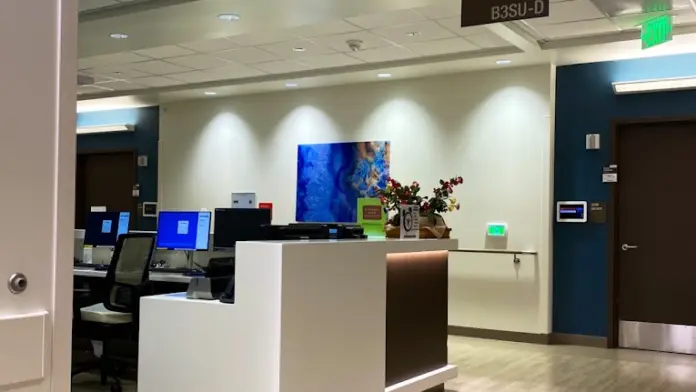
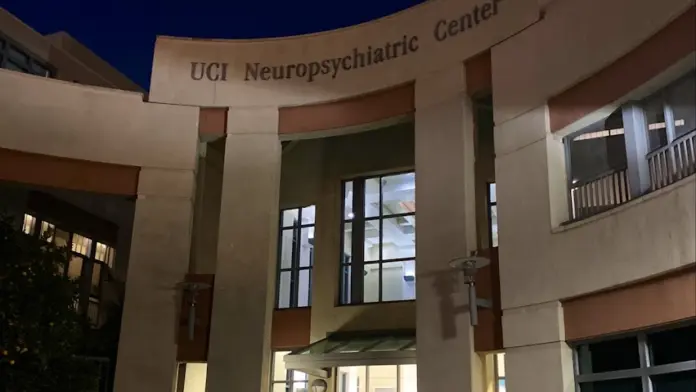


Accepted Insurance






Other Forms of Payment
Private insurance refers to any kind of healthcare coverage that isn't from the state or federal government. This includes individual and family plans offered by an employer or purchased from the Insurance Marketplace. Every plan will have different requirements and out of pocket costs so be sure to get the full details before you start treatment.
Self-pay involves paying for treatment out of your own pocket. You can use savings or credit, get a personal loan, or receive help from family and friends to fund your treatment. If you don't have insurance or your insurance plan doesn't cover a specific program, self-pay can help ensure you still get the care you need.
Financial aid can take many forms. Centers may have grants or scholarships available to clients who meet eligibility requirements. Programs that receive SAMHSA grants may have financial aid available for those who need treatment as well. Grants and scholarships can help you pai for treatment without having to repay.
Medicare is a federal program that provides health insurance for those 65 and older. It also serves people under 65 with chronic and disabling health challenges. To use Medicare for addiction treatment you need to find a program that accepts Medicare and is in network with your plan. Out of pocket costs and preauthorization requirements vary, so always check with your provider.
Military members, veterans, and eligible dependents have access to specific insurance programs that help them get the care they need. TRICARE and VA insurance can help you access low cost or no cost addiction and mental health treatment. Programs that accept military insurance often have targeted treatment focused on the unique challenges military members, veterans, and their families face.
Addiction Treatments
Levels of Care
Outpatient Programs (OP) are for those seeking mental rehab or drug rehab, but who also stay at home every night. The main difference between outpatient treatment (OP) and intensive outpatient treatment (IOP) lies in the amount of hours the patient spends at the facility. Most of the time an outpatient program is designed for someone who has completed an inpatient stay and is looking to continue their growth in recovery. Outpatient is not meant to be the starting point, it is commonly referred to as aftercare.
Residential treatment programs are those that offer housing and meals in addition to substance abuse treatment. Rehab facilities that offer residential treatment allow patients to focus solely on recovery, in an environment totally separate from their lives. Some rehab centers specialize in short-term residential treatment (a few days to a week or two), while others solely provide treatment on a long-term basis (several weeks to months). Some offer both, and tailor treatment to the patient's individual requirements.
Treatments
Mental health rehabs focus on helping individuals recover from mental illnesses like bipolar disorder, clinical depression, anxiety disorders, schizophrenia, and more. Mental health professionals at these facilities are trained to understand and treat mental health issues, both in individual and group settings.
Programs
Adult rehab programs include therapies tailored to each client's specific needs, goals, and recovery progress. They are tailored to the specific challenges adult clients may face, including family and work pressures and commitments. From inpatient and residential treatment to various levels of outpatient services, there are many options available. Some facilities also help adults work through co-occurring conditions, like anxiety, that can accompany addiction.
Young adulthood can be an exciting, yet difficult, time of transition. Individuals in their late teens to mid-20s face unique stressors related to school, jobs, families, and social circles, which can lead to a rise in substance use. Rehab centers with dedicated young adult programs will include activities and amenities that cater to this age group, with an emphasis on specialized counseling, peer socialization, and ongoing aftercare.
Clinical Services
Cognitive Behavioral Therapy (CBT) is a therapy modality that focuses on the relationship between one's thoughts, feelings, and behaviors. It is used to establish and allow for healthy responses to thoughts and feelings (instead of unhealthy responses, like using drugs or alcohol). CBT has been proven effective for recovering addicts of all kinds, and is used to strengthen a patient's own self-awareness and ability to self-regulate. CBT allows individuals to monitor their own emotional state, become more adept at communicating with others, and manage stress without needing to engage in substance abuse.
Dialectical Behavior Therapy (DBT) is a modified form of Cognitive Behavioral Therapy (CBT), a treatment designed to help people understand and ultimately affect the relationship between their thoughts, feelings, and behaviors. DBT is often used for individuals who struggle with self-harm behaviors, such as self-mutilation (cutting) and suicidal thoughts, urges, or attempts. It has been proven clinically effective for those who struggle with out-of-control emotions and mental health illnesses like Borderline Personality Disorder.
ECT is a form of treatment in which controlled electric currents are passed through the brain, sometimes causing short seizures. Treatments are done under general anesthesia. ECT appears to change brain chemistry for the better, and has been shown to provide fast and sometimes dramatic improvements in severe mental health conditions that can exist alongside addiction, including depression, bipolar disorder, psychosis, and suicidality. ECT is also often used by those who prefer it to taking medication.
Experiential therapy is a form of therapy in which clients are encouraged to surface and work through subconscious issues by engaging in real-time experiences. Experiential therapy departs from traditional talk therapy by involving the body, and having clients engage in activities, movements, and physical and emotional expression. This can involve role-play or using props (which can include other people). Experiential therapy can help people process trauma, memories, and emotion quickly, deeply, and in a lasting fashion, leading to substantial and impactful healing.
Group therapy is any therapeutic work that happens in a group (not one-on-one). There are a number of different group therapy modalities, including support groups, experiential therapy, psycho-education, and more. Group therapy involves treatment as well as processing interaction between group members.
Nutrition therapy, aka medical nutrition therapy (MNT), is a way of treating physical, emotional, and medical conditions through diet. Specific dietary plans are designed by professional nutritionists or registered dietitians, and patients follow them in order to positively affect their physical and mental health.
Staff

Chad T. Lefteris
President & Chief Executive Officer
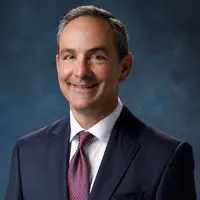
Joseph C. Carmichael, MD
Chief Medical Officer & Senior Vice President

Julie Eastman
Chief Information Officer & Senior Vice President
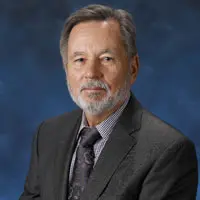
Scott Joslyn
Chief Innovation Officer & Senior Vice President

Tatyana Popkova
Chief Strategy Officer & Senior Vice President
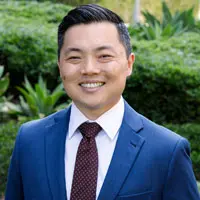
Nathan Shinagawa
Chief Operating Officer & Senior Vice President
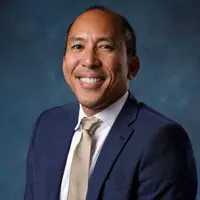
Randolph P. Siwabessy
Chief Financial Officer & Senior Vice President

Anne Marie Watkins
Chief Nursing Executive & Senior Vice President
Contact Information
101 The City Dr S
Orange, CA 92868
















